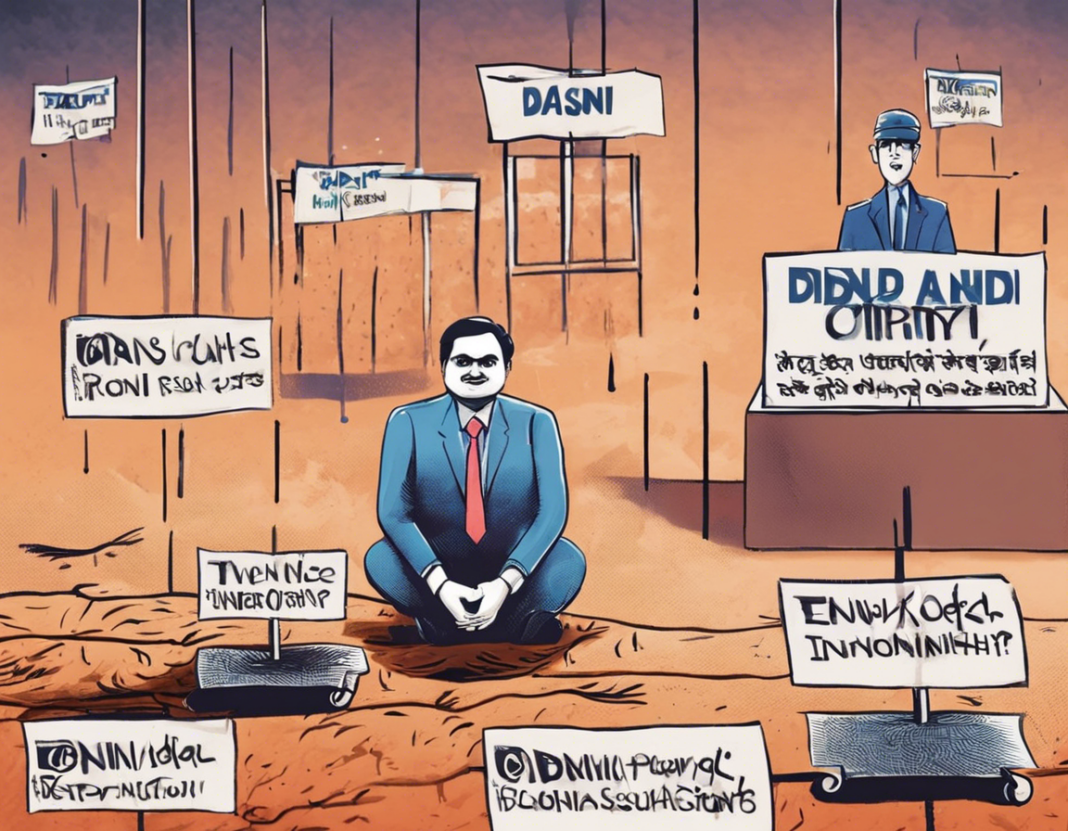With globalization on the rise, multinational corporations have expanded their operations across various countries, leading to increased scrutiny of their business practices. One such corporation, the Adani Group, has found itself at the center of a controversial bribery scandal that has shaken the business world. In this article, we will delve into the details of the scandal, exploring the key players, events, and consequences surrounding this issue.
The Adani Group: A Brief Overview
The Adani Group, founded by Gautam Adani in 1988, has grown to become one of India’s largest conglomerates, with interests in sectors such as energy, infrastructure, logistics, and agribusiness. The group’s rapid expansion and close ties to the Indian government have raised concerns about potential ethical violations and corrupt practices.
The Bribery Scandal Unfolds
The Adani Group bribery scandal came to light when several former employees and whistleblowers alleged that the company had engaged in corrupt activities to secure government contracts and favors. These allegations included bribing government officials, influential individuals, and even foreign officials to gain a competitive edge in the market.
Key Players in the Scandal
1. Gautam Adani
As the founder and chairman of the Adani Group, Gautam Adani has been under intense scrutiny for his alleged involvement in the bribery scandal. Despite denying any wrongdoing, Adani’s reputation has been significantly tarnished by the allegations.
2. Former Employees and Whistleblowers
The former employees and whistleblowers who came forward with evidence of corrupt practices within the Adani Group played a crucial role in exposing the scandal. Their bravery in the face of potential reprisals highlights the importance of whistleblower protection in uncovering corporate misconduct.
Events Leading to the Scandal
The Adani Group bribery scandal can be traced back to a series of questionable deals and transactions that raised suspicions within the industry. These events, including unusual payments, undisclosed partnerships, and suspicious contracts, eventually caught the attention of regulators and law enforcement agencies.
Consequences of the Bribery Scandal
The revelation of the bribery scandal has had far-reaching consequences for the Adani Group, including:
- Legal Investigations: Regulatory bodies and law enforcement agencies have launched investigations into the group’s activities, potentially leading to fines and criminal charges.
- Reputational Damage: The Adani Group’s once-sterling reputation has been severely damaged, leading to loss of investor confidence and market value.
- Operational Setbacks: The scandal has disrupted the group’s business operations, leading to delays in projects and cancellation of contracts.
Addressing the Ethical Dilemma
In the wake of the scandal, the Adani Group has taken steps to address the ethical dilemma it faces. These measures include:
- Internal Investigations: The group has launched internal investigations to root out corruption and improve transparency in its operations.
- Compliance Reforms: The Adani Group has implemented stricter compliance and governance frameworks to prevent future ethical lapses.
- Stakeholder Engagement: Engaging with stakeholders, including investors, employees, and regulators, to rebuild trust and restore credibility.
FAQs about the Adani Group Bribery Scandal
1. What specific allegations were made against the Adani Group?
- The allegations included bribing government officials, influential individuals, and foreign officials to secure contracts and favors.
2. How has Gautam Adani responded to the scandal?
- Gautam Adani has denied any wrongdoing and emphasized the group’s commitment to ethical business practices.
3. What are the potential consequences for the Adani Group?
- The group faces legal investigations, reputational damage, and operational setbacks as a result of the scandal.
4. What steps has the Adani Group taken to address the ethical dilemma?
- The group has conducted internal investigations, implemented compliance reforms, and engaged with stakeholders to improve transparency and governance.
5. How can whistleblowers play a role in uncovering corporate misconduct?
- Whistleblowers can provide critical evidence of unethical behavior within organizations, leading to investigations and accountability for those involved.
In conclusion, the Adani Group bribery scandal serves as a stark reminder of the importance of ethical conduct in business and the consequences of failing to uphold these principles. As the investigation unfolds and the repercussions become clearer, the Adani Group faces a long road to rebuilding trust and restoring its reputation in the eyes of stakeholders and the public. Only time will tell how the group navigates this challenging period and whether it emerges stronger and more ethical in its business practices.




